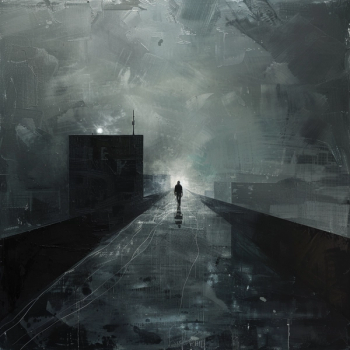
Bella, Horrida Bella
“In the realm of psychiatry, the therapeutic value of poetry lies in its ability to transcend the limitations of prose, offering a space for the unsayable and the ineffable.”
We humans are confusing creatures who stand alone in the animal kingdom, fraught with reason and imagination. That, I think, is quite obvious. Yet, I feel that the loneliness that comes with that understanding of our uniqueness easily scorns the mind and heart. And if I might be so bold, I proffer that many of us feel off-kilter in this world. We are of nature, but unlike the plants and animals around us, are not just natural beings. And it is the synthetic nature we were graced with that is a double-edged sword.
Through the lens of poetry, I explore the nuanced landscapes of my mind and heart, transcending the boundaries of conventional language. Writing, especially in the realm of poetry, has been an indispensable tool on my journey toward mental well-being. It serves as a form of self-discovery—a therapeutic medium that allows me to articulate and process emotions that may otherwise remain elusive. It allows me to come to terms with my complex humanity, and through my synthetic function, make leaps to understand and accept it.
For me, there are 2 types of poetry.
- The type that seeks to unravel threads of thought that echo the complexities of our shared human experience. Through these, we share with others the realizations that we have come to.
- The type that acts as a conduit for introspection, or a way to navigate the enigmatic terrain of emotions and consciousness. Through these, we wage war on our divided observations, emotions, and assumptions and build a unified platform of understanding.
Our ability to make sense of the world around us, and our place in it, helps to make one our synthetic mind and our natural soul and places us in communion with other synthetic beings and the natural world around us.
Writing then is not merely an artistic endeavor but a profound act of self-discovery—a philosophical excavation of the soul’s recesses. In the realm of psychiatry, the therapeutic value of poetry lies in its ability to transcend the limitations of prose, offering a space for the unsayable and the ineffable. It becomes a mirror reflecting the kaleidoscope of thoughts and feelings, fostering a deeper connection with oneself and the world.
In this poem, I explore the love of a mother for her son, who is soon to head to war. I know not of this type of love, but I attempt to capture its essence for myself. By doing so, I explore my own feelings on loss, risk, and fear and place them next to those of another. I grab hold of them and cement them in writing, making real these feelings that were once cagey thoughts scampering from heart to mind and back. Thus, the rhythmic cadence of verses becomes a sanctuary for introspection, offering myself some clarity and catharsis.
Through poetry, I hope to convey not only the beauty of language but also the transformative potential it holds in fostering emotional resilience and nurturing of the soul. I hope to inspire contemplation on the intricate interplay between language, consciousness, and well-being—inviting readers to embark on their own philosophical exploration through the written word.
Bella, Horrida Bella
Bella, Horrida bella
And if you were to sit,
Finally,
Would you not lament the wakings of tomorrow,
Ruminate the sorrows of today,
Claw at the pangs of yesterday?
I know you to be fearful,
It’s,
Not too apparent to others,
But I know you, don’t I?
The small twitch in your lit cigarette,
Giving,
It all away,
You born a man of Christ,
But now tasting the journey,
Will you still stand opposite armistice?
Or do you run bounded by some sense of youth,
Back,
To the woods,
Where toy guns still lay scattered,
On imagined no man’s lands.
As I am to,
You,
I should campaign the world,
Just to get the cigarette out of your hand,
But I stand windless and silent stilled,
For if you were to sit,
Out there,
Would the toxic fumes invading your lungs,
But the only show of love to you?
Lament, ruminate, claw no more until back
to me,
You are,
Until your feet solidify,
planted and rooted-bringing life,
Back to Kansas.
Until then think only of cigarette,
Warmth and highs,
And spare a second,
If you can,
For your sweet Bella,
And the God of war too.
Dr Rashidian is a PGY-1 in internal medicine at Prisma Health—Greenville.
Newsletter
Receive trusted psychiatric news, expert analysis, and clinical insights — subscribe today to support your practice and your patients.







